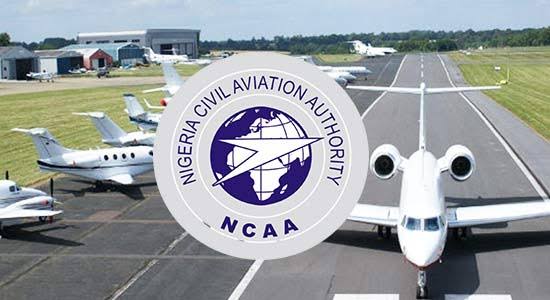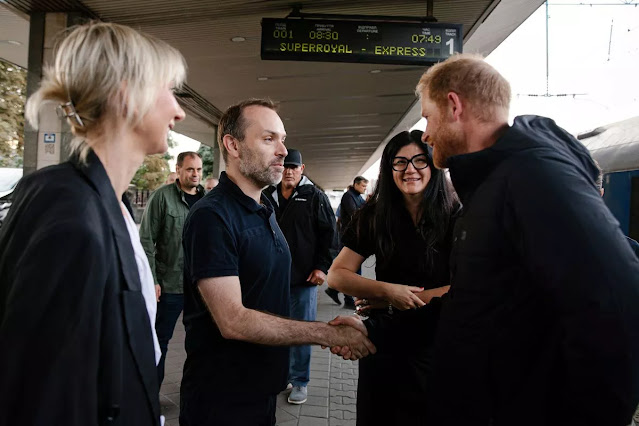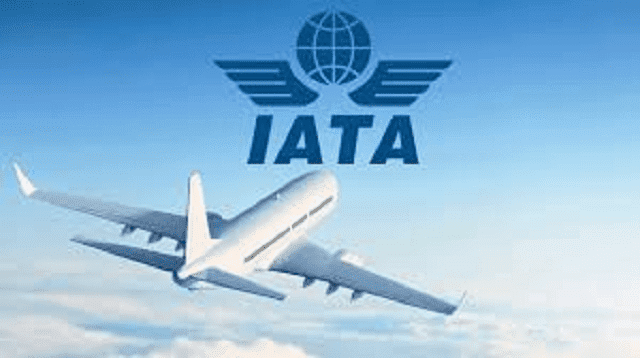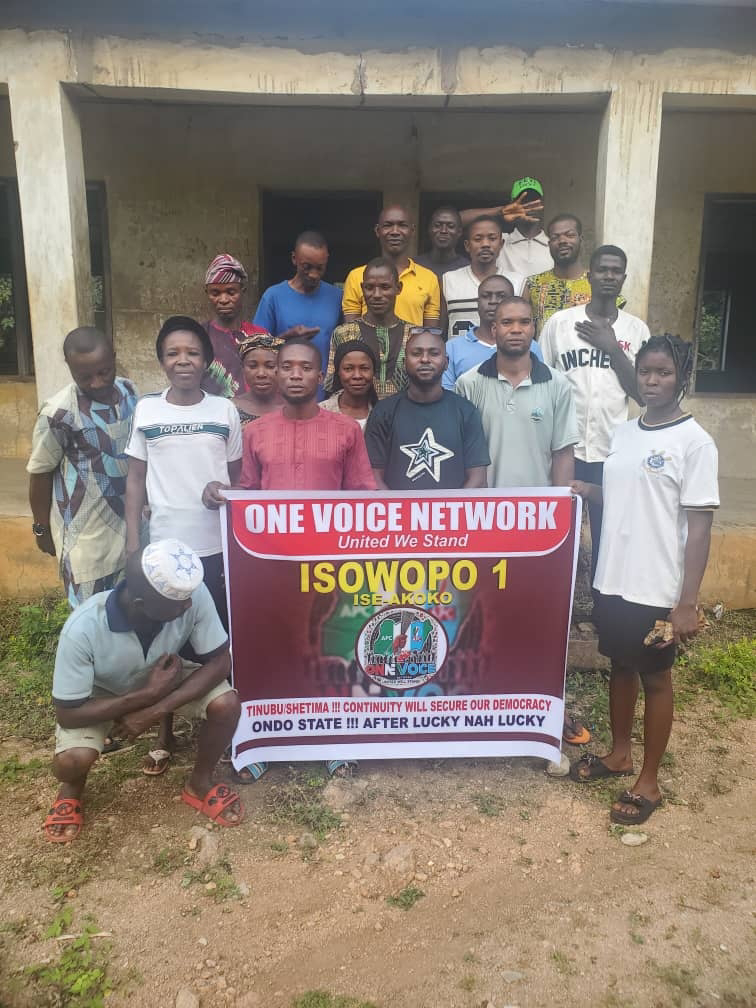In a decisive move to enhance safety, restore discipline, and protect the welfare of crew members within Nigeria’s aviation industry, the Nigeria Civil Aviation Authority (NCAA) has issued a stringent directive to all airlines operating in the country. The regulatory body has mandated that airlines must prevent aircraft from taking off if disruptive passengers are onboard, a policy aimed at curbing unruly behavior, safeguarding aviation personnel, and fostering a more respectful and orderly travel environment. This directive, which underscores the NCAA’s commitment to upholding safety standards and professionalism, was announced in Abuja by Michael Achimugu, the NCAA’s Director of Public Affairs and Consumer Protection, who spoke on behalf of the Director General of Civil Aviation, Captain Chris Najomo, during a high-level meeting with executives of domestic airlines.
The new policy comes in response to a growing number of incidents involving disruptive passengers, which have not only threatened the safety of crew members but also undermined the overall travel experience for other passengers. By enforcing this directive, the NCAA aims to send a clear message to travelers and airline operators alike: unruly behavior will not be tolerated, and strict measures will be implemented to ensure compliance with aviation regulations. The directive is part of a broader effort to address systemic issues within the aviation sector, including passenger misconduct, crew professionalism, and airline accountability, all of which are critical to maintaining a safe and efficient air travel system in Nigeria.
The Directive: No Take-Off with Disruptive Passengers
The core of the NCAA’s directive is a zero-tolerance policy for disruptive passengers. According to Achimugu, pilots are explicitly instructed not to depart until any disruptive passenger is either removed from the aircraft or the situation is resolved amicably. This measure is designed to protect cabin crew members, who often bear the brunt of verbal or physical assaults from unruly travelers. “Pilots are not to depart until disruptive passengers are removed or the situation is amicably resolved. This protects crew members and encourages passengers to accord them proper respect,” Achimugu stated during the meeting in Abuja.
The directive places significant responsibility on pilots, who are now expected to exercise greater authority in managing onboard conflicts. Achimugu emphasized that many confrontations escalate due to pilots’ failure to take decisive action when faced with disruptive behavior. By empowering pilots to delay or cancel take-offs in such situations, the NCAA aims to prevent incidents from spiraling out of control, thereby ensuring the safety of both crew and passengers. This policy also serves as a deterrent to passengers who might otherwise engage in disruptive behavior, knowing that such actions could result in their removal from the flight.
At the same time, the NCAA has called on cabin crew members to maintain the highest standards of professionalism in their interactions with passengers. Achimugu cautioned that while firmness is necessary to enforce discipline, it should never cross the line into rudeness. “Firmness must never be mistaken for rudeness,” he stressed, highlighting the delicate balance that crew members must strike in handling challenging situations. This directive underscores the NCAA’s expectation that both passengers and crew members adhere to a code of conduct that promotes mutual respect and ensures a harmonious travel experience.
Context: Rising Incidents of Unruly Behavior
The NCAA’s directive comes in the wake of several high-profile incidents involving disruptive passengers that have drawn widespread attention and sparked public discourse on passenger behavior in Nigeria’s aviation sector. One such incident involved an altercation between an Ibom Air employee and a passenger named Comfort Emmanson. The confrontation, which was captured on video and went viral on social media, highlighted the tensions that can arise between passengers and airline staff, particularly in high-stress situations such as flight delays or cancellations.
Another notable incident involved renowned Nigerian musician KWAM 1, who was allegedly linked to a dispute that delayed a Lagos-bound flight. While details of the incident remain limited, it reportedly involved disruptive behavior that disrupted the normal operations of the flight, further underscoring the need for stricter regulations to address such conduct. These incidents, among others, have raised concerns about the increasing frequency of unruly behavior on flights and the potential risks it poses to aviation safety.
The NCAA’s response reflects a broader recognition of the need to address passenger misconduct as a critical component of aviation safety. Disruptive behavior, whether verbal or physical, can create a hostile environment onboard, distract crew members from their duties, and compromise the safety of the flight. By implementing this directive, the NCAA aims to proactively mitigate these risks and ensure that all passengers can travel in a safe and respectful environment.
Airline Responsibilities: Beyond Managing Disruptive Passengers
In addition to addressing passenger behavior, the NCAA’s meeting with airline executives also highlighted the broader responsibilities of airlines in ensuring a positive travel experience for passengers. Mrs. Ifueko Abdulmalik, Senior Special Assistant to the NCAA Director General, outlined several key obligations that airlines must fulfill to meet regulatory standards and protect passenger rights. These obligations include:
Timely Communication During Delays: Airlines are required to provide clear and timely communication to passengers in the event of flight delays or cancellations. This includes informing passengers of the reasons for the delay, the expected duration, and any alternative arrangements being made. Transparent communication is essential to managing passenger expectations and reducing frustration, which can often lead to confrontations with crew members.
Swift Processing of Refunds: Airlines must ensure that passengers who are entitled to refunds receive them promptly. Delays in processing refunds have been a recurring issue in Nigeria’s aviation sector, leading to dissatisfaction among travelers. The NCAA emphasized that airlines must streamline their refund processes to comply with consumer protection regulations.
Adequate Care for Stranded Passengers: In cases where passengers are stranded due to flight disruptions, airlines are obligated to provide adequate care, including refreshments, accommodation, or alternative transportation where necessary. This requirement is aimed at mitigating the inconvenience caused by delays or cancellations and ensuring that passengers are treated with dignity and respect.
These obligations reflect the NCAA’s commitment to balancing the enforcement of discipline with the protection of passenger rights. By holding airlines accountable for both managing disruptive passengers and fulfilling their responsibilities to travelers, the NCAA seeks to create a more equitable and efficient aviation system.
Airlines Involved and NCAA’s Enforcement Measures
The Abuja meeting was attended by representatives from several major domestic airlines in Nigeria, including Arik Air, Air Peace, Ibom Air, Aero Contractors, United Nigeria Airlines, Green Africa Airways, Max Air, Rano Air, ValueJet, and Overland Airways. The inclusion of these airlines underscores the NCAA’s intent to ensure that the directive is implemented across the board, regardless of the size or market share of the carrier.
To enforce compliance, the NCAA has warned that any airline that permits disruptive passengers to remain onboard risks facing sanctions. These sanctions could include fines, suspension of operating licenses, or other penalties, depending on the severity of the violation. The NCAA’s firm stance reflects its determination to restore discipline and professionalism within the aviation sector, which has faced criticism in recent years for issues ranging from poor customer service to safety concerns.
The regulatory body has also made it clear that the new policy is not merely punitive but is designed to achieve broader objectives, including reinforcing aviation safety, protecting crew members, and fostering a more orderly travel environment. By addressing the root causes of disruptive behavior and holding both passengers and airlines accountable, the NCAA aims to create a safer and more pleasant experience for all stakeholders in Nigeria’s aviation industry.
Broader Implications for Nigeria’s Aviation Sector
The NCAA’s directive represents a significant step toward addressing long-standing challenges in Nigeria’s aviation sector, which has grappled with issues such as operational inefficiencies, passenger dissatisfaction, and safety concerns. By prioritizing the safety and well-being of crew members, the directive acknowledges the critical role that aviation personnel play in ensuring the smooth operation of flights. Cabin crew members, in particular, are often on the front lines of managing passenger interactions, and their ability to perform their duties effectively is essential to maintaining safety and order onboard.
Moreover, the directive aligns with global trends in aviation regulation, where authorities are increasingly cracking down on unruly passenger behavior. Incidents of disruptive behavior have risen worldwide in recent years, driven by factors such as increased travel demand, stress related to flight disruptions, and changing passenger expectations. In response, aviation authorities in countries such as the United States, the United Kingdom, and Australia have implemented similar measures to address the issue, including fines, bans, and legal action against offenders. Nigeria’s adoption of this directive places it in line with these international best practices, signaling its commitment to upholding global aviation standards.
The directive also has implications for passenger behavior and public perception of air travel in Nigeria. By enforcing strict consequences for disruptive conduct, the NCAA aims to deter passengers from engaging in such behavior and promote a culture of mutual respect between travelers and airline staff. This cultural shift is particularly important in a country where air travel is a critical mode of transportation, connecting major cities and facilitating economic activity.
Challenges and Considerations
While the NCAA’s directive is a welcome development, its implementation may face several challenges. For one, airlines may encounter logistical difficulties in removing disruptive passengers, particularly in cases where flights are already delayed or operating under tight schedules. The process of identifying and resolving disruptive behavior requires clear protocols and coordination between pilots, cabin crew, ground staff, and security personnel, which may strain airline resources.
Additionally, there is the challenge of balancing firmness with fairness. While the NCAA has emphasized that crew members must remain professional and avoid rudeness, there is a risk that overzealous enforcement of the directive could lead to misunderstandings or disputes with passengers. To mitigate this, airlines will need to invest in training programs that equip crew members with the skills to handle conflicts diplomatically while adhering to the NCAA’s guidelines.
Another consideration is the need for public awareness campaigns to educate passengers about the new policy and its implications. Many travelers may be unaware of the consequences of disruptive behavior or may not fully understand their rights and responsibilities under aviation regulations. By engaging in proactive communication, the NCAA and airlines can help set clear expectations and reduce the likelihood of confrontations.
Conclusion
The Nigeria Civil Aviation Authority’s directive to prevent aircraft take-offs when disruptive passengers are onboard marks a pivotal moment in the country’s efforts to enhance safety, discipline, and professionalism in its aviation sector. By empowering pilots to take decisive action, protecting crew members, and holding airlines accountable for passenger welfare, the NCAA is addressing critical issues that have long plagued the industry. The directive, announced during a meeting with executives from major domestic airlines, reflects a broader commitment to aligning Nigeria’s aviation practices with global standards and fostering a more respectful and orderly travel environment.
As the directive takes effect, its success will depend on the cooperation of airlines, crew members, and passengers, as well as the NCAA’s ability to enforce compliance effectively. While challenges remain, the policy represents a proactive step toward creating a safer, more efficient, and passenger-friendly aviation system in Nigeria. By addressing unruly behavior and reinforcing airline responsibilities, the NCAA is paving the way for a more positive travel experience for all stakeholders in the country’s aviation industry.







